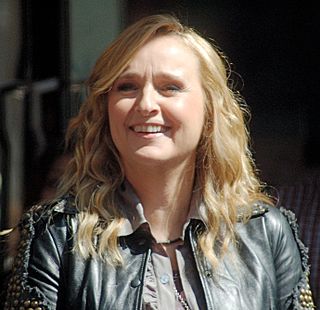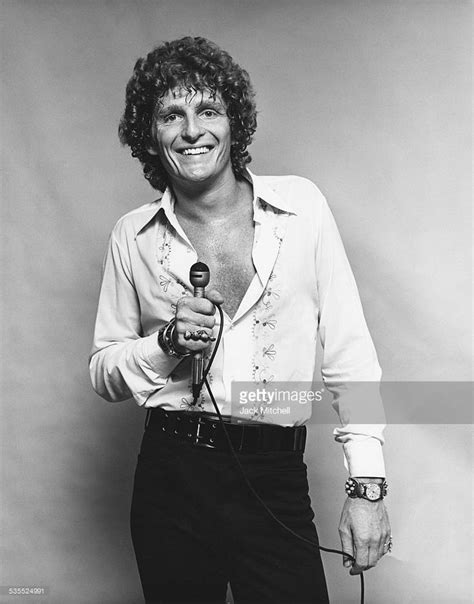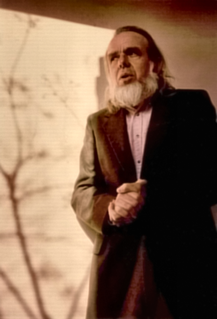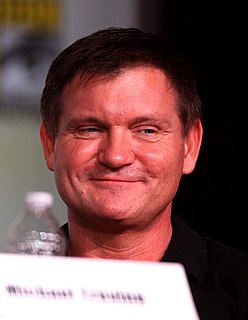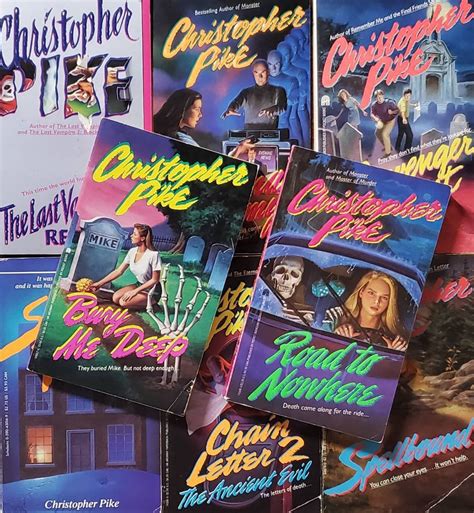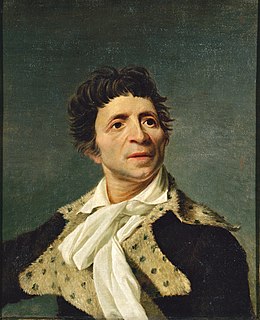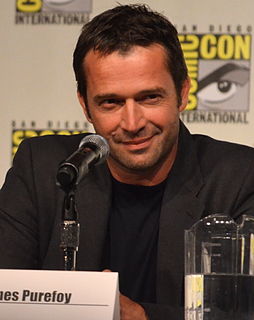A Quote by Ralph Fiennes
Having gone through editing process, I can see that in actor's faces there's point where they're not managing their performance and that's, I think, the best place to be. You've done the homework, you've learned the lines, at that point you just sort of let it out.
Related Quotes
Performance is made in the editing room, and I've come to see the truth in that - the idea that they say performances are usually made in the editing room because what you film is the raw material. I think just going through the process of saying, "Which take do we use? Why is that the take we want? I want that take can you edit again, I'm not sure that's the one, I think it's this one." And just because you go through that process, I think somehow it's made me sort of more open about the [actor's] possibilities.
The script is a starting point, not a fixed highway. I must look through the camera to see if what I've written on the page is right or not. In the script, you describe imagined scenes, but it's all suspended in mid-air. Often, an actor viewed against a wall or a landscape, or seen through a window, is much more eloquent than the lines you've given him. So then you take out the lines. This happens often to me and I end up saying what I want with a movement or a gesture.
I'm happy to say that at 62, I think I've reached that point where stuff doesn't bother me as much, and my gratitude level has gone way up, especially having gone through the loss that I've had, and losing so many of the great artists that I was close to. They taught me how to see it with a grain of salt and a lot of humor and perspective.
I have a great editor and I enjoy, in a masochistic way, being ruthless about my own performance. How do I know, but I think I'm quite good at saying, "That's no good. That's no good. That's it. That's it. That's good." And I'm with the editor who goes, "No, I think you're wrong. That's not your best." There's an initial point in the editing, if you're directing yourself, especially in my case, where you go, "Ouch, ouch, ouch, I can't watch this." And then, there's a point where you become hard-nosed and just take your neurosis away and go, "What's working? That's okay. That's okay. We can lose that, and lose that." You get objective about it.
I really don't put it down. I never have. It's just that I analyze it and look at it from a very rational point of view. I don't see it as coming from God and say that at a certain point the Holy Spirit zaps you with a super whammy on the head and you've "gone for tongues" and there is it. Tongues is a process that people build up to. Then, as you start to do something, just as when you practice the scales on the piano, you get better at it.
Before I was a Discordian, I took life much too seriously. When you take life too seriously you start to wonder what the point of it all is. When you wonder what the point is in life, you fall into a trap of thinking there is one. When you think there is a point, you finally realize there is no point. And what point is there in living like that? Nowadays I skip the search for a point and find, instead, the punch lines.
Im happy to say that at 62, I think Ive reached that point where stuff doesnt bother me as much, and my gratitude level has gone way up, especially having gone through the loss that Ive had, and losing so many of the great artists that I was close to. They taught me how to see it with a grain of salt and a lot of humor and perspective.




